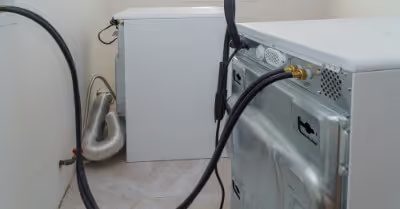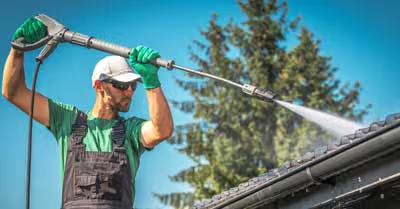Table of Contents
What are Mobile Homes?
Before you purchase a mobile home insurance policy, you first need to understand what a mobile home is. Mobile homes are also known as manufactured homes.
Unlike conventional homes that are built on-site, mobile homes are built in a factory and then placed on a movable chassis.
Mobile homes come in 3 main sizes. These are single-wide, double-wide as well as triple-wide.
Single-wide mobile homes have a width of up to 18 feet and a maximum length of 90 feet. Doublewide mobile homes have a width of approximately 20 to 36 feet and a maximum length of 90 feet. Triple wide mobile homes feature a maximum width of 50 feet and up to 90 feet long.
Knowing the type of your mobile home will help you to purchase the right mobile home insurance policy so that you can be protected adequately.
What is Mobile Home Insurance?
Mobile home insurance is similar to homeowners insurance in many aspects. However, it’s specifically meant for people who own mobile homes or manufactured homes.
Mobile home insurance will protect the structure of your mobile home as well as your personal property in that structure. Your policy document will clearly outline what will be covered and what’s not covered.
It’s important to note that mobile home insurance will only cover your mobile home when it’s parked. So, when your mobile home is on the move, then you will need to purchase other types of insurance policies.
Similar to other types of insurance policies, mobile home insurance also comes with a coverage limit. Whenever you file for a limit, your insurer will only pay you up to the limit.
So, if the damage exceeds the coverage limit, then you will have to cover the balance out of pocket. Coverage limits depend on the type of coverage you’ve purchased and the company you’ve purchased the insurance from.
What are the Different Categories of Mobile Home Insurance?
When it’s time to choose a mobile home insurance policy, it’s important to choose one that reflects the type of residence or how you use your mobile home. Typically, there are 3 residence categories, which define how you use your mobile home:
Primary Residence
If you or any of your family members live in the mobile home for more than a certain number of days as specified in the policy document, then your mobile home will be deemed as your primary residence. Consequently, you will need to purchase mobile home insurance primary residence coverage.
Seasonal or Secondary Residence
If you only use your single-wide or doublewide mobile home a few times in a year such as for recreation, holidays or vacation, then your mobile home is deemed as a secondary residence. So, when you are buying insurance for your mobile home, you should opt for seasonal or secondary coverage, instead of primary residence coverage.
Rental Residence
If you’ve rented out your mobile home to someone else, then you should go for rental residence coverage. You should note that rental residence coverage will only protect the structure. So, the tenant will have to purchase their own renter's insurance, to protect their possessions.
What Does Mobile Home Insurance Cover?
As highlighted earlier, mobile home insurance works almost the same way as homeowners insurance. It will provide coverage for your mobile home, and your valuables. Also, it will provide liability protection. You can also customize your policy depending on the possessions that you have. Below are the main coverages for mobile home insurance:
Dwelling Coverage
Mobile home insurance will compensate you and help you to repair and rebuild your mobile home, if it’s damaged by events like wind, hail, fire, vandalism, theft, or hail, among other covered perils. So, if a tree falls on your mobile home and damages the structure, then your mobile home insurance will help you to repair it.
Personal Property
Your mobile home insurance policy will also provide coverage for your possessions, whether they are stolen or damaged. For example, if a thief breaks into your mobile home and runs off with your laptop, then you will be covered.
When it comes to personal property coverage, you need to determine whether your mobile home insurance will provide replacement cost coverage or actual cash value coverage.
Replacement cost coverage will compensate you with enough money to replace the lost or damaged property.
Actual cash value coverage, on the other hand, will only pay you a depreciated amount for your lost or damaged item. And the amount may not be enough to replace the lost or damaged item. So, ensure everything is clear when signing your policy document.
Personal Liability Protection
Just like homeowners insurance policies, mobile home insurance will also provide personal liability coverage, if someone outside your family is injured at your mobile home.
Liability protection coverage might include things like lost wages, medical expenses as well as pain and suffering.
Most mobile home insurance companies will limit coverage based on where your mobile home is parked.
For example, a mobile home parked in an adult park may come with a liability limit of $200,000. And if the same home was parked in a family park, then it may only have a liability limit of $100,000.
Additional Coverages
Some mobile home insurance policies also offer additional coverages for things like loss of credit cards and identity theft, debris removal, food spoilage and protection for your landscaping.
You may also purchase additional coverage for emergency protection and repair, in case your mobile home is damaged when it's in motion.
How Much Does Mobile Home Insurance Cost?
Mobile home insurance costs approximately $300 to $1000 per year. But as noted earlier, the actual cost that you will pay for your policy will depend on various factors like:
- Your home’s value
- The location or where your mobile home is parked
- Construction materials
- Your mobile home’s size
- Repair and renovation history
- Claims history
- Installed safety and security devices
- The cost to replace your mobile home
Apart from the above factors, your mobile home insurance cost will also depend on the policy that you choose. As you may expect, you will pay higher premiums if you opt for comprehensive coverage compared to basic coverage.
Your deductible will also determine the cost of your mobile home insurance premiums. For instance, if you choose a lower deductible, then you should expect to pay higher premiums, compared to someone who has chosen a higher deductible.
How Much Mobile Home Insurance Do You Need?
Having adequate insurance coverage is vital. If your mobile home is completely damaged by fire or any other disaster and you are underinsured, then it may be challenging to replace.
And if you were using your mobile home as your primary residence, then you may even find yourself homeless. Therefore, to determine how much mobile insurance you will need, you should consider the following factors:
- Your mobile home’s replacement cost
- The total value of the improvements you’ve made
- The value of your valuables
Once you’ve determined the approximate figure for each of the above factors, it will then be easy to determine how much insurance you will need. You’d rather be over-insured instead of being under-insured.
Shopping for Mobile Home Insurance
Whether you are purchasing mobile home insurance for the first time or you are renewing it, it’s important to choose a policy that aligns best with your needs.
First, you need to determine whether you want replacement cost coverage or actual cash coverage. Replacement cost coverage will replace or repair your mobile home as it is.
On the other hand, actual cash policies will only provide coverage, based on your home’s current market value, minus depreciation costs.
Actual cash coverage is cheaper to purchase than replacement cost coverage. So, the type of coverage you will choose will depend on the value of your mobile home and the money you are willing to spend on mobile home insurance.
Second, you should work with a company that specifically deals with mobile home insurance. Some insurance companies provide mobile home insurance through third-party insurers. And such arrangements may not be the best for you. So, ensure you work with an agent or a company that’s experienced in mobile home insurance.
Third, make sure you clarify everything in the policy document. Ask questions about what’s covered and what’s not covered.
If possible, you should hire an insurance attorney, who will help you to understand the policy document, to eliminate issues and confusion down the road.
Is Mobile Home Insurance Worth It?
Whether you own a single-wide mobile, a double-wide manufactured, a stick-built or any other mobile home, it’s highly advisable to have mobile home insurance. A total loss from theft or damage may leave you without a home, which can be extremely frustrating and inconveniencing. Considering that mobile home insurance costs approximately $300 annually, it’s a small amount of money, which can go a long way, in protecting you and your family whenever a disaster strikes.
Recent Articles
















